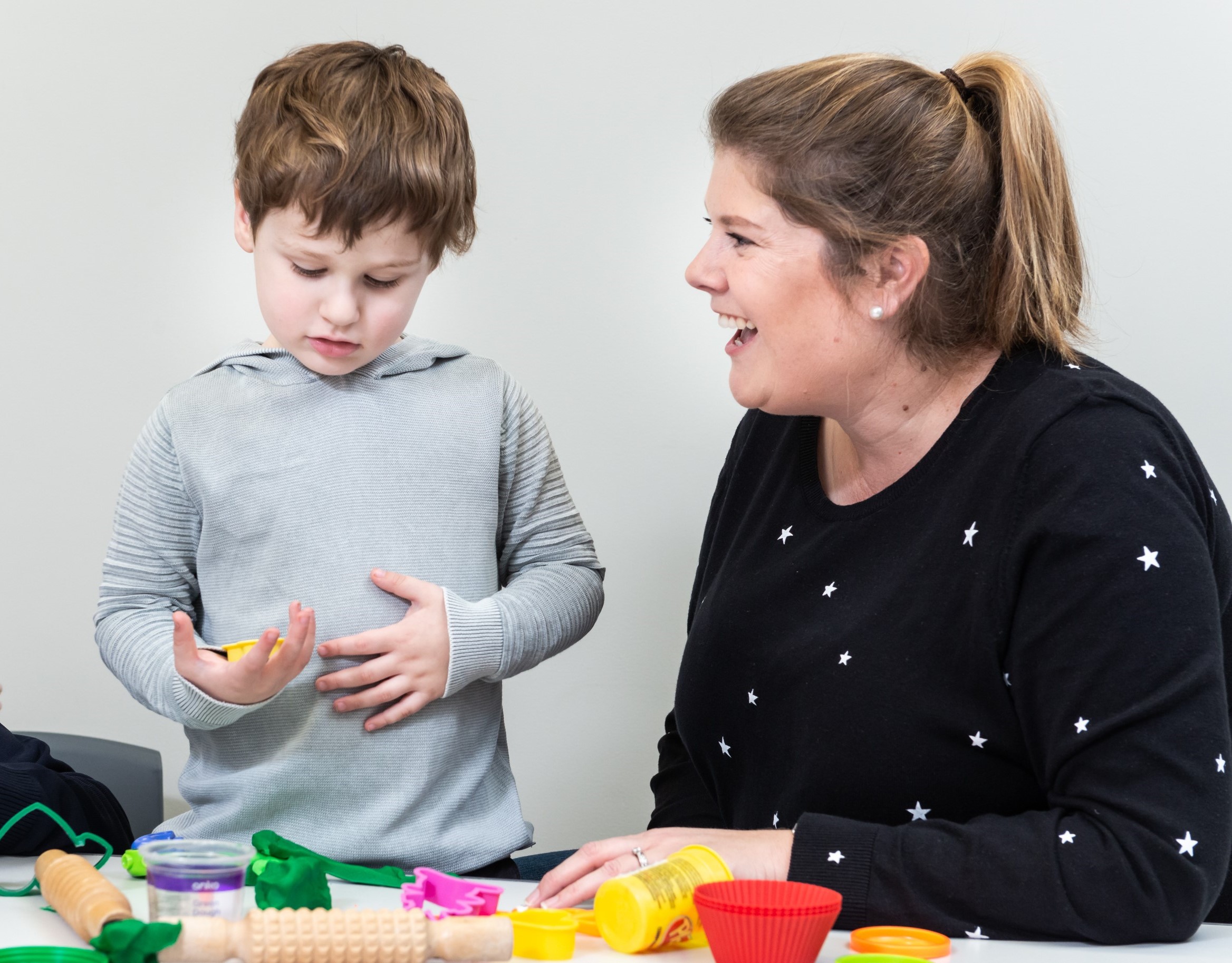Search
Showing results for "autism"
Research
Family satisfaction following spinal fusion in Rett syndromeWe evaluated family satisfaction following spinal fusion in girls with Rett syndrome
Research
Daytime sleepiness and emotional and behavioral disturbances in Prader-Willi syndromeIndividuals with Prader-Willi syndrome (PWS) often have excessive daytime sleepiness and emotional/behavioral disturbances. The objective of this study was to examine whether daytime sleepiness was associated with these emotional/behavioral problems, independent of nighttime sleep-disordered breathing, or the duration of sleep.

News & Events
Unpacking PACT - a program supporting child communicationIn this new blog, Senior Speech Pathologist and PACT therapist/trainer Sally Grauaug discusses the benefits of PACT, how it works and how clinicians become certified PACT therapists.
Research
Change in Gross Motor Abilities of Girls and Women With Rett Syndrome Over a 3- to 4-Year PeriodWe describe change in gross motor function over 3 to 4 years for 70 subjects participating in the Australian Rett Syndrome Database
Research
Gastrointestinal dysmotility in rett syndromeThrough evidence review and the consensus of an expert panel, we developed recommendations for the clinical management of gastroesophageal reflux disease,...
Research
Oral health education and promotion in special needs children: Systematic review and meta-analysisTo review the effectiveness of oral health education and oral health promotion interventions for children and adolescents with intellectual and developmental disabilities (IDD), in ensuring optimal gingival health, caries experience and oral health-related quality of life, compared to no interventions or alternative interventions.
Research
Measurement of Sedentary Behaviors or "downtime" in Rett SyndromeThis study aimed to validate measures of sedentary time in individuals with Rett syndrome.
Research
Burden of illness in Rett syndrome: initial evaluation of a disorder-specific caregiver surveyRett syndrome (RTT) is a severe X-linked neurodevelopmental disorder associated with multiple neurologic impairments. Previous studies have shown challenges to the quality of life of individuals with RTT and their caregivers. However, instruments applied to quantify disease burden have not adequately captured the impact of these impairments on affected individuals and their families. Consequently, an international collaboration of stakeholders aimed at evaluating Burden of Illness in RTT was organized.
Research
Rett Syndrome Behaviour Questionnaire: Variability of Scores and Related FactorsRett syndrome (RTT) is a severe neurodevelopmental disorder affecting predominantly females and associated with variants in the MECP2 gene. Recent success in clinical trials have resulted in an expanded use of the Rett Syndrome Behaviour Questionnaire (RSBQ) for clinical and research purposes.
Research
CDKL5 deficiency disorder: clinical features, diagnosis, and managementCDKL5 deficiency disorder (CDD) was first identified as a cause of human disease in 2004. Although initially considered a variant of Rett syndrome, CDD is now recognised as an independent disorder and classified as a developmental epileptic encephalopathy.
